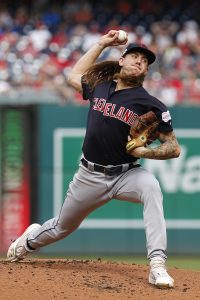4:23pm: Mike Clevinger also has a deal with the Cleveland org, per Zack Meisel of The Athletic (via Twitter). It’s a $4.1MM deal, per Ryan Lewis of the Akron Beacon Journal (Twitter link).
Clevinger had projected for $400K more than the settlement point. As MLBTR’s Matt Swartz explained, there was a good argument for him to reach his $4.5MM projection. But the Indians were able to hold Clevinger to just under the amount secured by Kyle Hendricks in 2018.
1:48pm: The Indians have avoided arbitration with shortstop Francisco Lindor, per Jon Heyman of MLB Network (via Twitter). He’ll reportedly earn $17.5MM in a deal that also includes some award incentives.
The arbitration model of MLBTR and Matt Swartz projected a $16.7MM salary for the still-youthful star. But it was an especially difficult number to gauge, as Matt explained in his recent look at Lindor’s arb case.
Interestingly, Matt had anticipated that his projection was a bit high. It turned out to be low. As he noted in that post, the difficulty was in sorting out how to handle the positional adjustment for Lindor. While recent raises for lumbering sluggers might have operated as caps for Lindor’s earnings, he obviously could and would have argued that his defensive proficiency should be weighed on the scale. The team obviously agreed — or, at least, felt there was a legitimate chance that an arbitrator would be swayed by such evidence.
This now makes for an important market marker to bear in mind in the future. Of course, it’s likelier to act as a ceiling unless a truly exceptional player comes along. Lindor, who just turned 26, swatted 32 home runs and slashed .284/.335/.518 in 654 plate appearances in 2019.

